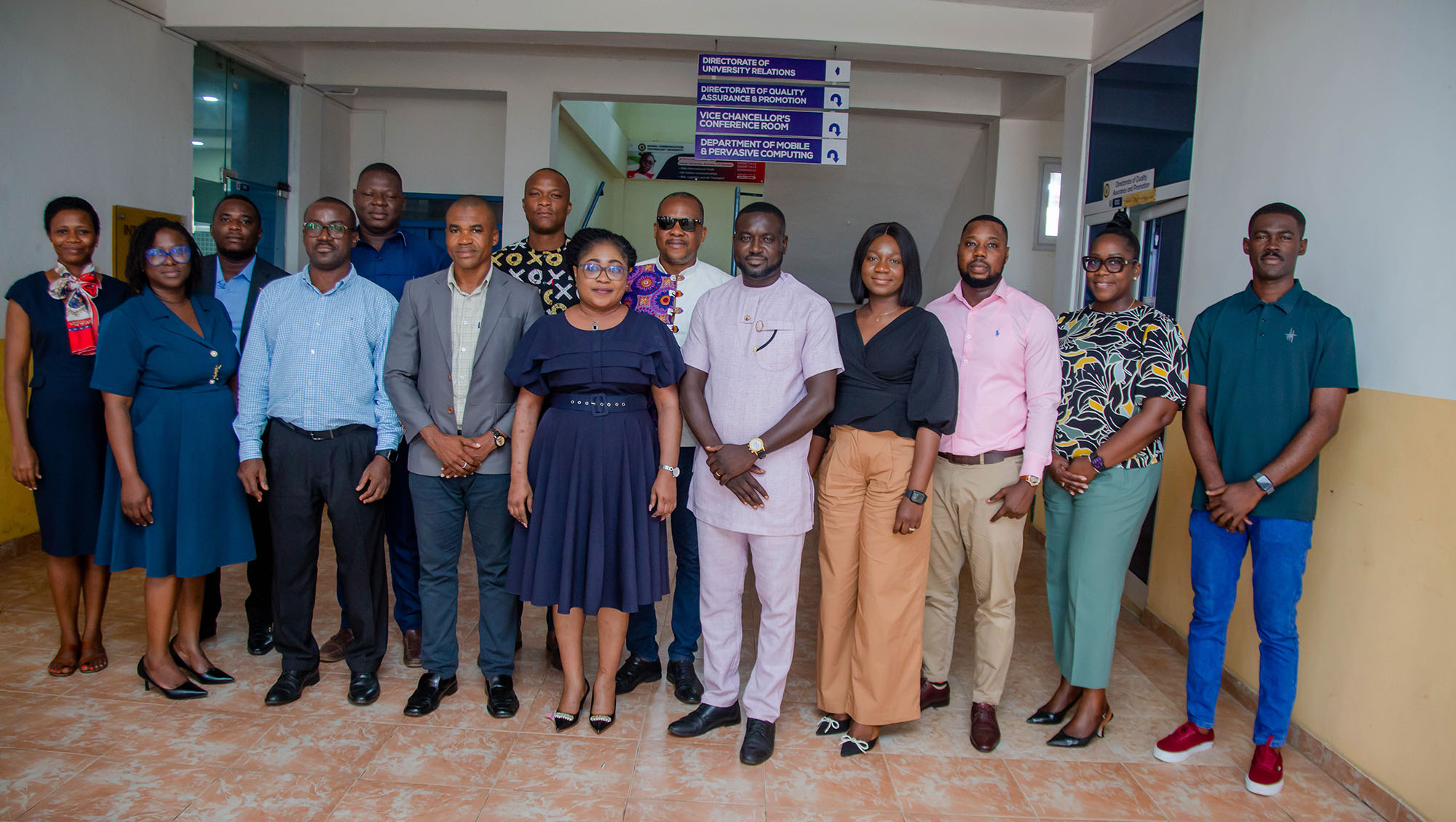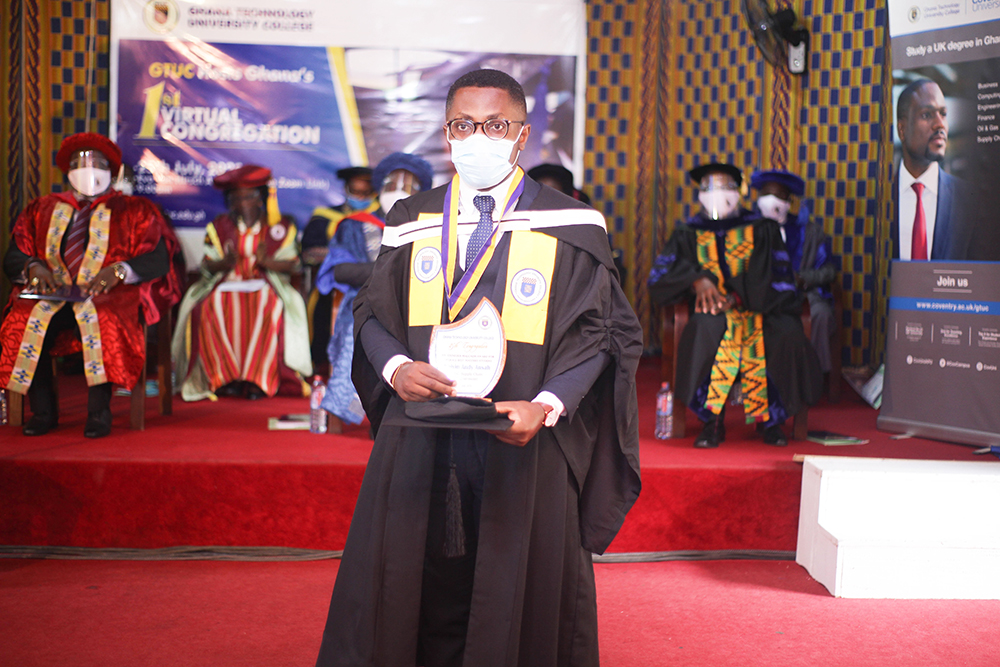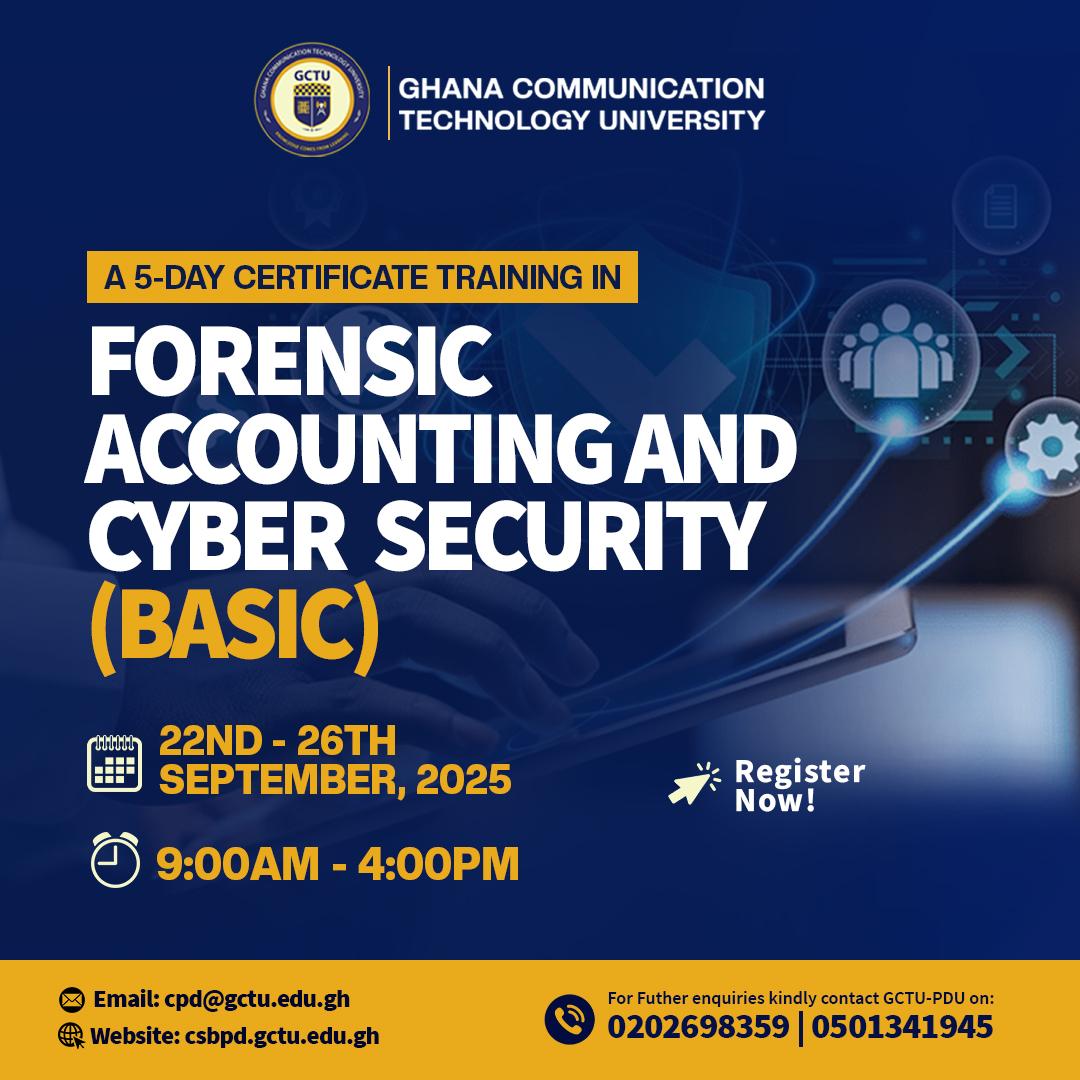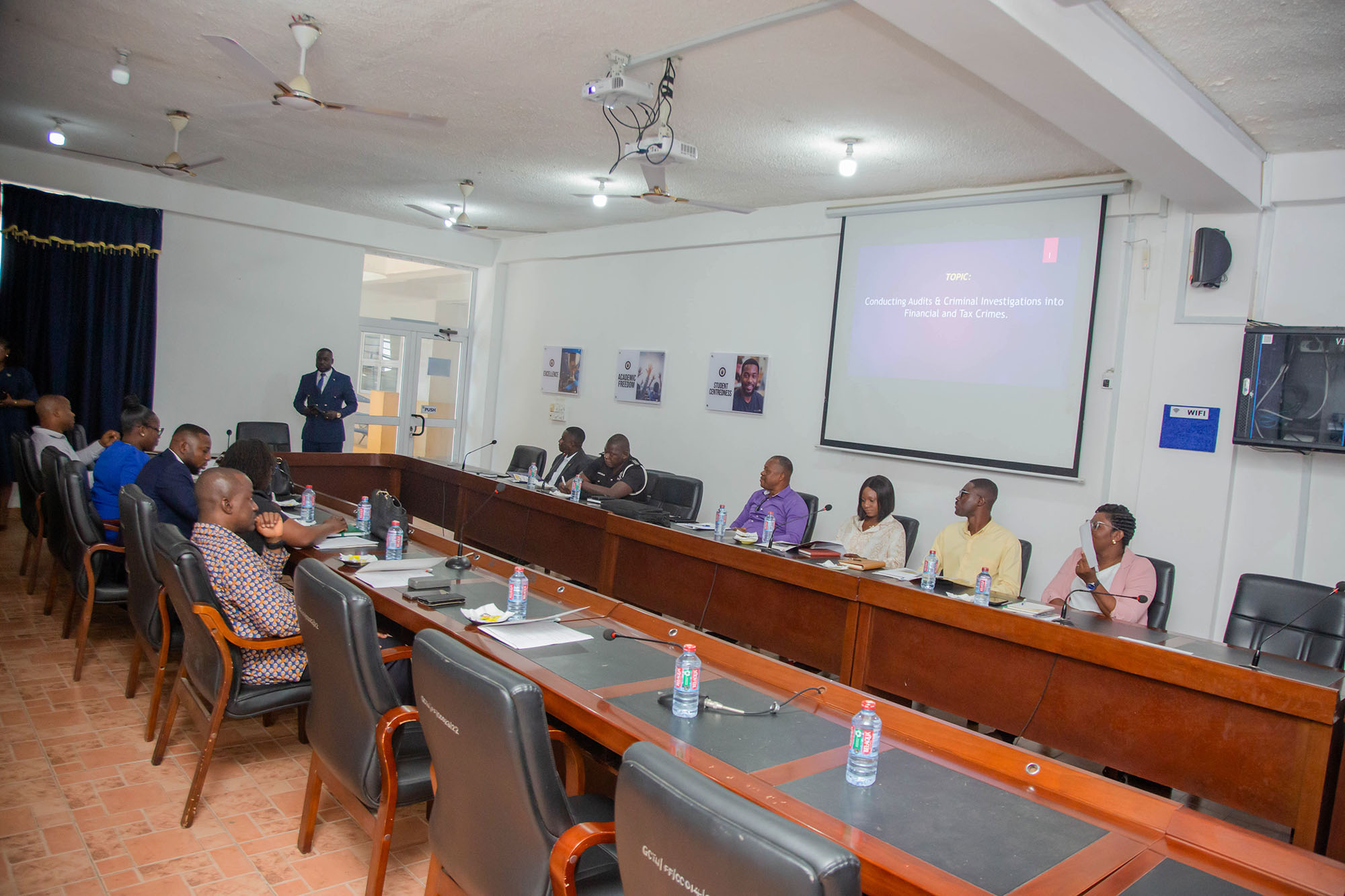
The Centre for Strategic Business and Professional Development (CBSPD) of GCTU has successfully hosted a three-day training programme on “Conducting Audit and Criminal Investigation Skills for Financial and Tax Crimes,” held from September 15-17, 2025, at the VC’s Conference room.
The three-day event, which brought together professionals from different organizations aimed at providing them with the tools and knowledge to detect, investigate and address tax and financial crimes.
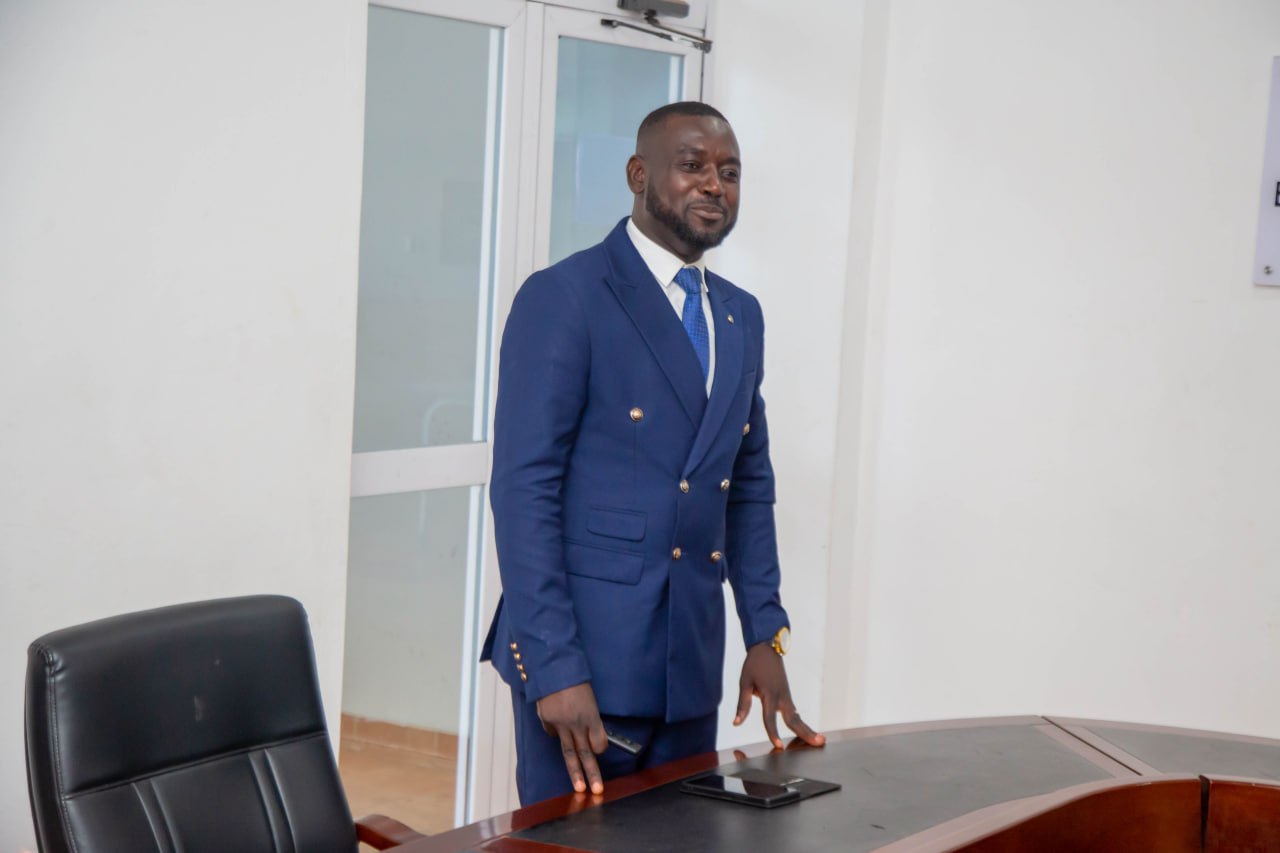
The training programme was expertly facilitated by a Certified Global Business Analyst (FCGBA, CA), Tax Consultant and an Internal Auditor at GCTU, Rev. Gilbert Akanguyue Awaasi. He indicated that tax and financial crimes refer to illegal acts committed with the intent to gain financial or economic benefits, often through deception, misrepresentation, or violation of tax or financial regulations. Rev. Awaasi added that fraud costs individuals, businesses and economies hundreds of millions of dollars annually.
Furthermore, he emphasized, that it can significantly damage the reputations of affected individuals and organizations. According to him, fraudulent activities are prevalent in both private and public sector entities, but in the public sector, these activities can be particularly threatening. Rev. Awaasi underscored the challenges of combating fraud, stating that it involves confronting intelligent, knowledgeable, powerful and sometimes dangerous individuals

Rev. Awaasi emphasized that financial and tax crimes pose a significant threat to both national economies and corporate sustainability. He indicated that audits and investigations are crucial tools, but their success relies heavily on robust corporate governance structures. Effective corporate governance, he noted, fosters a culture of transparency, accountability and compliance, making it harder for fraud to occur and easier to detect. Rev. Awaasi highlighted some types of tax crimes, including:
- Tax evasion: – (illegally avoiding paying taxes, for example, underreporting income).
- Tax fraud: – (using false documents, identities, or structures to deceive tax authorities.
- Failure to file:- (not submitting tax returns or declarations).
- Offshore tax schemes: – (hiding assets or income in foreign accounts).
- Use of shell companies: – (creating fake entities to disguise true ownership and crime).

In addition, he outlined some types of financial crimes, including money laundering, embezzlement, fraud, bribery and corruption, as well as Ponzi and Pyramid schemes.
The Facilitator delved into “Fraud Investigation Strategies,” stressing that it requires careful planning, a risk-based focus and confidentiality. “Evidence gathering must follow strict forensic and legal standards to ensure admissibility. Fraud reporting should be clear, objective and lead to corrective or punitive action,” he remarked. Rev. Awassi further added that fraud investigations aim to uncover facts, identify perpetrators and establish evidence for administrative, civil or criminal proceedings. He stressed that effective strategies include a risk-based approach, planning the investigation, intelligence gathering and collaboration with other law enforcement agencies such as the OSP, EOCO, NIB and the Ghana Police Service.

Earlier in her opening remarks, the Director of CSBPD, Mrs. Araba Hackman Akanji, emphasized the Centre’s dedication to delivering high-quality, non-academic programmes that enhance professional skills and provide specialized industry training. Mrs. Hackman Akanji elaborated that by equipping professionals with these skills, organizations and governments can effectively combat financial crimes, promote financial integrity and support economic development.
In her closing remarks, Mrs. Hackman Akanji commended the participants for their active participation in the training programme, noting that it will strengthen their ability to conduct effective audits and investigations into financial and tax crimes. “I encourage you to share the knowledge acquired with your colleagues who could not get the opportunity to attend. Do not forget, the fight against financial and tax crimes requires diligence, professionalism and integrity,” Mrs. Hackman Akanji emphasized. She highlighted GCTU’s diverse academic offerings, spanning diplomas to PhDs. On behalf of management, she expressed gratitude to the facilitator for sharing his expertise, which significantly contributed to the training’s success.
The training programme concluded on a successful note, with participants receiving certificates that recognized their newly enhanced-skills and knowledge.
